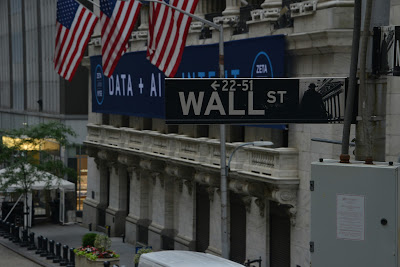Big Tech and Smart Cities: 18 Technologies Reshaping Urban Living in 2025
As we move deeper into the digital era, the collaboration between big tech and smart cities is revolutionizing how we live, move, and interact in urban environments. Tech giants like Google, IBM, Cisco, and Amazon are behind the scenes of smart urban planning, building solutions that promise to improve quality of life, sustainability, and city efficiency. In this post, we explore 18 real technologies already being implemented in smart cities like Singapore, Dubai, Amsterdam, NEOM (Saudi Arabia), and Toronto.
What Are Smart Cities?
Smart cities are urban areas that use digital technology, sensors, and data-driven solutions to manage city services more efficiently. These cities aim to optimize traffic, energy, waste, water, healthcare, and public safety. This transformation is being driven by big tech companies that provide the infrastructure and platforms needed to make cities smarter, safer, and more connected.
How Big Tech Is Powering Smart Cities
Big tech plays a critical role in developing and scaling the core technologies used in smart cities. Cloud computing, AI, the Internet of Things (IoT), and 5G networks are the backbone of this transformation. Cities like Singapore and Dubai have partnered with global tech leaders to build real-time data platforms, automate city services, and enable advanced urban analytics.
18 Smart City Technologies That Will Genuinely Improve Urban Living
- AI-Powered Traffic Management: Amsterdam uses AI to reduce congestion and optimize traffic lights.
- Smart Waste Management: Barcelona’s smart bins notify collectors when they’re full.
- Connected Public Transport: Singapore offers real-time bus tracking and smart cards.
- Smart Lighting Systems: Dubai’s motion-based LEDs save power and costs.
- Energy-Efficient Buildings: Toronto automates heating, cooling, and lighting systems.
- 5G Infrastructure: Seoul enables seamless communication between smart devices.
- Cloud Computing Platforms: Cities use Microsoft Azure and AWS to centralize operations.
- Predictive Policing: U.K. cities use AI for crime prediction and deployment.
- Digital Twin Cities: NEOM creates real-time virtual replicas of buildings and utilities.
- Smart Parking: San Francisco enables real-time parking space tracking.
- Clean Energy Solutions: Freiburg integrates solar and battery systems citywide.
- Smart Water Management: Singapore uses sensors to detect leaks and optimize water flow.
- Autonomous Delivery Vehicles: San Jose tests last-mile drone and robot deliveries.
- Public Wi-Fi Networks: New York City's LinkNYC provides free high-speed Wi-Fi.
- Health Monitoring Systems: Dubai's wearables integrate with city health databases.
- Noise & Air Quality Sensors: London uses real-time monitoring to reduce pollution.
- Urban Agriculture Technology: Tokyo invests in vertical farming systems.
- Citizen Engagement Platforms: “FixMyStreet” in the U.K. lets people report issues in real-time.
The Benefits of Big Tech and Smart City Integration
- Lower carbon emissions and improved energy use
- Smarter urban planning using real-time data
- Increased public safety via connected sensors
- Efficient healthcare monitoring and services
- Faster, more sustainable transport networks
Challenges and Concerns
Despite the benefits, big tech's involvement in smart cities raises concerns about:
- Privacy and surveillance: Smart cities constantly collect data — how is it protected?
- Cybersecurity threats: Centralized digital systems attract hackers.
- Tech monopolies: Overreliance on tech giants may limit innovation and control.
Conclusion: The Future of Big Tech and Smart Cities
The integration of big tech in smart cities is reshaping how the world’s most advanced cities operate. From smart buildings in Toronto to public Wi-Fi in New York, these technologies are transforming daily life. Moving forward, cities must balance innovation with transparency, equity, and security for all citizens.
What do you think about smart cities? Leave your thoughts in the comments and subscribe to our blog for more on future tech and innovation!

.png)
.png)
.png)


.png)

